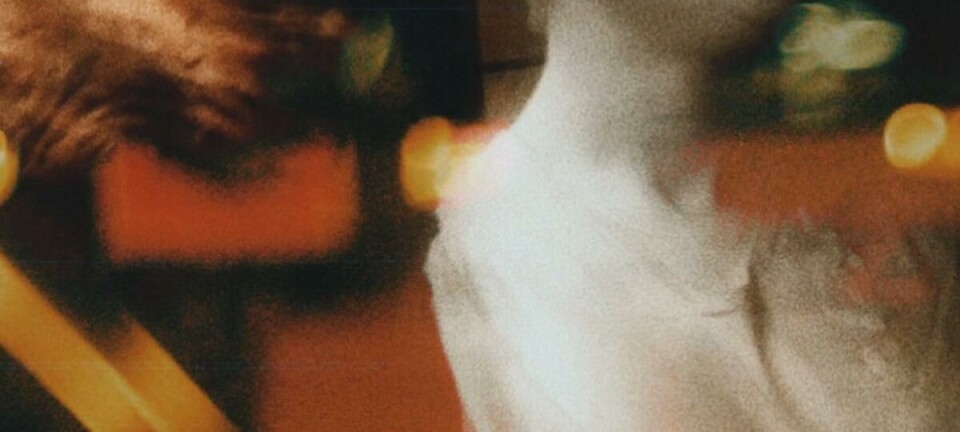article> Arts & Culture
Homer’s Jukebox: Cinematek’s ‘Theatrum Opticum Revived'

With its new exhibition ‘Theatrum Opticum Revived’, Cinematek offers the unorthodox vision of breaking up with tradition.
by Celina Bebenek
Contributing Writer
Located at Rue Baron Horta in Brussels, Cinematek is a cross between a film museum, cinema, and art gallery. Since its establishment in 1938, it has made the cinematic experience accessible to the wider public. As we read on its website, its mission is 'to build and preserve a collection of films of permanent aesthetic, technical and historical quality'. However, it also seeks to preserve the so-called 'magic of the cinema'. They strive to provide a unique experience for cinema lovers. However, whilst glorifying the old, Cinematek also appreciates the unorthodox and welcomes those who challenge the traditional. Cinematek hosts various events where alternative artists are invited to present their unique and often unconventional ideas that prompt a reflection on the nature of the cinema.
One of these events was the ‘Theatrum Opticum Revieved’ project organised by Zuzanna Rachowska, a Polish curator. It was devoted to the work of an experimental Dutch artist called Eric de Kuyper. The exhibition spanned over two weeks, between October 10th and 24th. It consisted of both an art exhibition and evening movie screenings. However, it quickly turned out that the project posed a challenge to the boundaries between visual arts and cinema. Therefore, it could not be classified simply as one of these two forms of art.
During the opening event, we were first of all directed to the main hall where the art exhibition was presented. It consisted of several 'Peeping Boxes' which were miniature video installations placed in handmade boxes. When looking inside the boxes, one was able to watch short ‘movies’. The themes of these videos varied from tender love scenes to soft pornography, oscillating between the classical and surreal, thus creating an obscene but astonishing experience. There were four boxes in total: ‘Pink Ulysses’, ‘Peeping Box 1’, ‘Swimming Pool’ and ‘Renaissance’. Each was made in a different style and portrayed a different scene. Kuyper explained that the idea of peeping boxes originated from his disappointment that his movies were often separated from the main body of art in exhibitions. As a result, he decided to bring his work back to the audience by merging movies and visual arts into one. This unique form of expression leaves the audience with both a sense of curiosity and unsettlement, but also prompts reflections on the nature of art.
Next, we were invited to the second part of the event — the screening of Kuyper’s movie entitled Pink Ulysses. On other days of the event, they also held screenings for Casta Dive and Naughty Boys, two other movies directed by Kuyper. The screening began with a brief introduction by the artist. The film itself is a variation on the classical myth of the return home of Ulysses. This well-known theme is the starting point of the venture into a surreal exploration of sexuality, homo-erotic desire, time, feminism and embodiment. Rather than following the traditional plot, the movie consists of an assemblage of chaotic and strangely alluring vivid images ranging from the theatrical shots of the fall of Troy and slow, black-and-white closeups of the male body. It is accompanied by Wagner’s music as well as full of repetitions and switches between different languages. Therefore, it is not surprising that the artist himself calls it a kind of a sophisticated ‘jukebox’. Initially, I had mixed feelings towards the movie because I found it rather unsettling. However, I realised soon afterwards that this is caused by my being too accustomed to the linear and classical narration that is so prevalent in modern cinema. Nonetheless, I appreciated Kuyper’s attempt to transgress the boundaries of cinema. In the end, I treated the movie more as a sort of experience rather than something that requires intellectual interpretation.
Unfortunately, Cinematek is closed because of the pandemic. Nevertheless, you can still get a glimpse of its magic virtually by visiting its Facebook site. It often publishes links to movies, as well as information about upcoming film festivals. During the corona-free times it hosts permanent exhibitions about the history of cinema and photography. The screenings for movies are very cheap: one only has to pay 4/8 euros to have access to the screenings. At Cinematek, it is also possible to see the permanent exhibition about the history of the cinema free of charge, as well as a modern part that explores the technological approach to art. Hence, it is worth visiting the Cinematek in order to get a glimpse of the magic of cinema, no matter what form it takes.
For more regular content
- Follow us on Facebook: https://www.facebook.com/thevoice.loko
- Check out our Instagram page: https://www.instagram.com/thevoice.kuleuven/
- Listen to our podcasts on: https://www.mixcloud.com/The_Voice_KUL_Student_Radio
For submissions or applications
- Email us at thevoice@loko.be
- Or message us on Facebook





